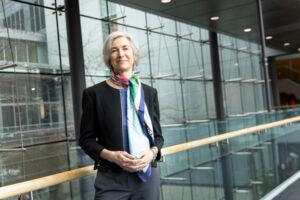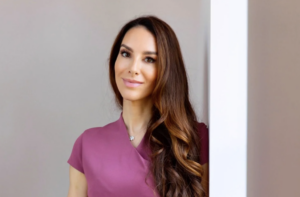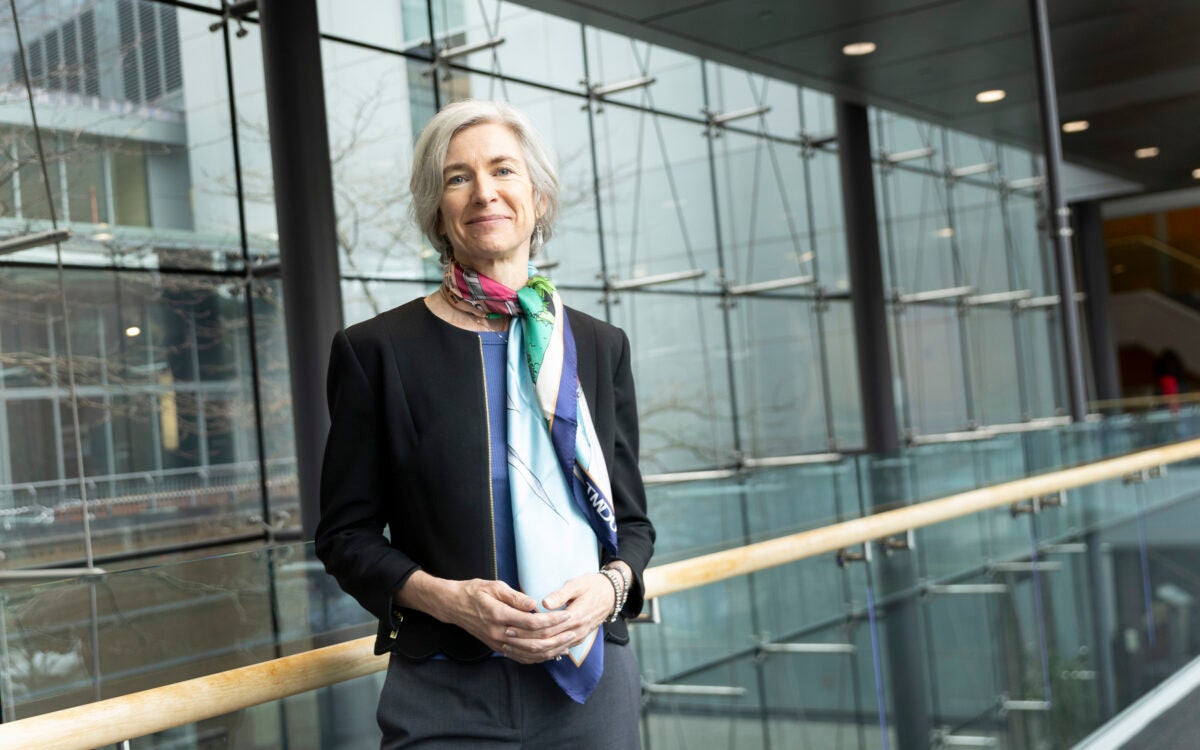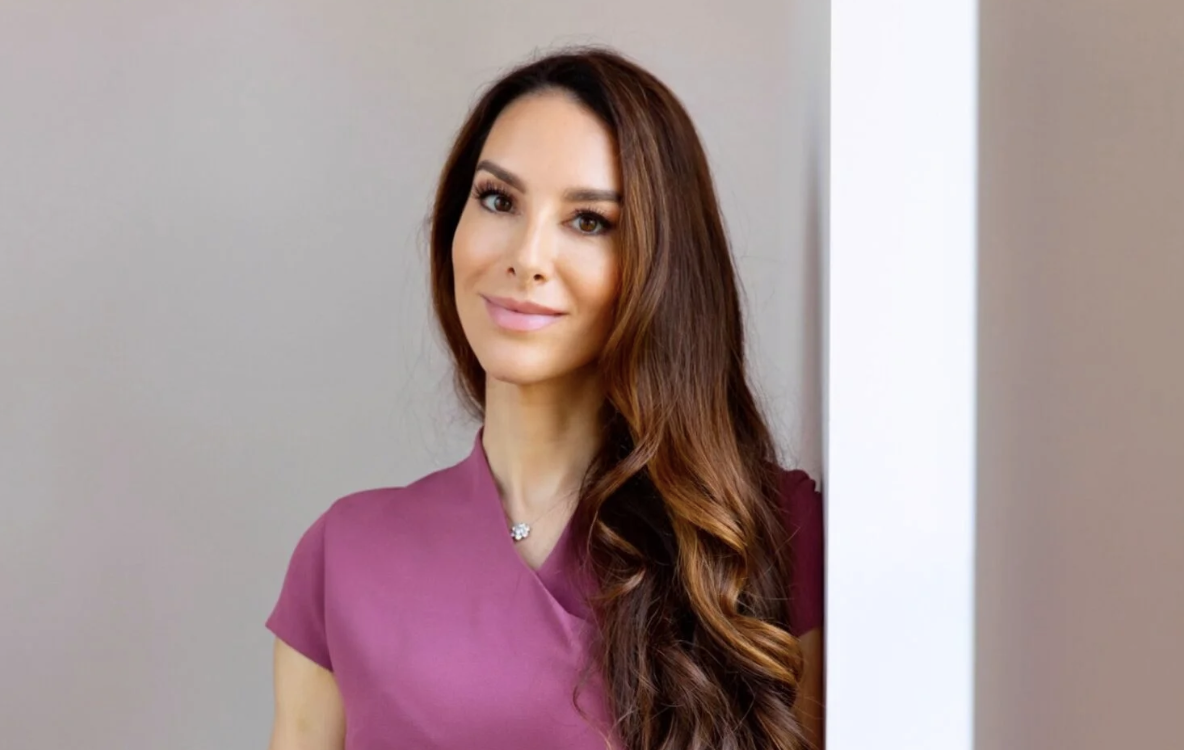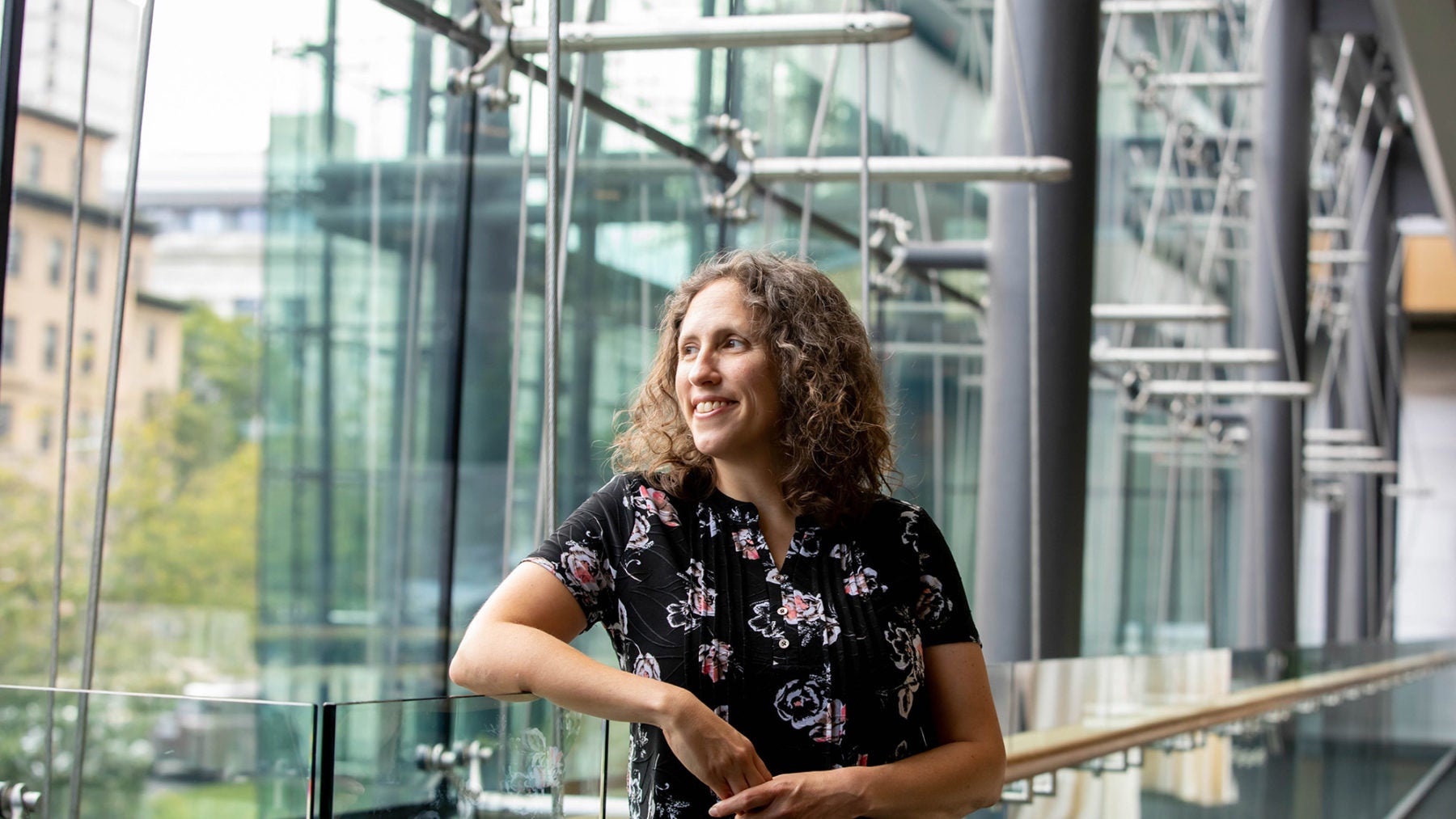
Rose Lincoln/Harvard Staff Photographer
Expressing genes
“Our focus is genetics, but we think it could have really wonderful returns for our world, just to know each other better.”
From ancestry tests to the personal genetic information collected by law enforcement to solve cold cases, the use of DNA-based technologies is expanding rapidly across American society. But while their use is becoming more widespread, the knowledge about how these technologies work and the options people have when confronted with choices about how their own DNA might be used hasn’t kept pace.
Marnie Gelbart and the staff at Personal Genetics Education Project (pgEd) at Harvard Medical School want to change that. Based out of the Department of Genetics, pgEd works directly with schools, policymakers, and faith communities, among others, to increase public understanding about what genetics is, how genetic technologies work, and the ethical, legal, and social implications information about genetics could have for the lives of people everywhere.
“Science is moving faster into the hands of society,” explains Gelbart, director of programs for pgEd. “We want to empower people from all walks of life to have their voices heard when [the use of their] personal genetic [information] enters community conversations. We truly believe there is knowledge about genetics that can help [people] be safer. If they have that knowledge, when they are offered a medical test in a doctor’s office, they may be more comfortable to speak up and ask a question.”
Since 2014, Gelbart and her colleagues have partnered with high school educators in South Dakota on a series of three-day professional development workshops and lesson planning sessions exploring the genetics-related issues that teachers and students might face. Topics include the use of gene-editing tools like CRISPR on human subjects (Chinese researchers reportedly have employed it to bolster HIV resistance in twin girls), personalized medicine, privacy concerns involving insurers and employers, the history of eugenics, and questions around direct-to-consumer tests done by providers such as 23andMe.
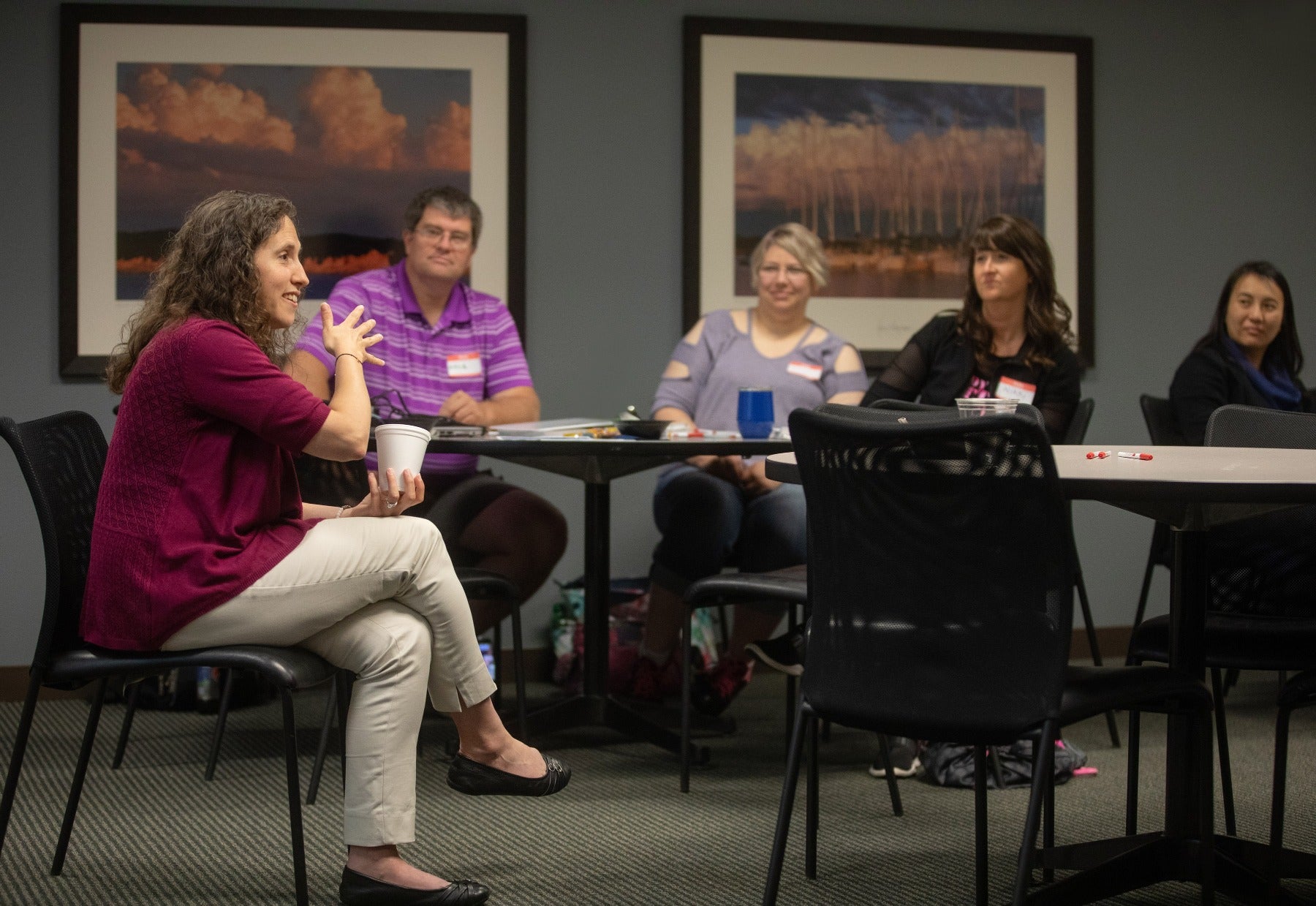
Gelbart, director of pgEd programs, interacts with educators during a professional development workshop on talking with students about personal genetics at Sanford Health in Sioux Falls, S.D.
Photos courtesy of Jay Pickthorn and Sanford Health News
“The goal very early on was to put content in a teacher’s hand that they could use back in their classrooms,” says Liz McMillan. A former South Dakota science teacher, McMillan helped organize education outreach programs for Sanford Research, a biomedical research facility based in the Dakotas that has partnered with pgEd. “Over the last few years, [the workshops have] shifted to providing a foundation of knowledge for teachers so that they can figure out how to take [that knowledge] out into the world based on the experiences they have in their own classrooms.”
Part of that foundation involves helping the workshop teachers think about how best to facilitate conversations about genetics in their classrooms, where concerns about how DNA technologies should be used may vary wildly from student to student and region to region.
“We have always thought really deliberately about the people who are furthest away from this conversation, who may have the least access to information, who may be the most concerned about how genetics is used,” says Gelbart. “We are not here to change minds: People will decide what is best for themselves and their families, but the more we work to be inclusive in how we talk about genetics, the better chance we have that people will get the information they want.”
“There are a lot of people, from rural communities to tribal and Native communities, who deserve to be part of these discussions,” agrees McMillan.
“To ensure access, globally, to this kind of conversation, context, and information, and to be inclusive of those voices when we think about legislative action and decisions and regulations is incredibly important.”
This story is part of the To Serve Better series, exploring connections between Harvard and neighborhoods across the United States.

